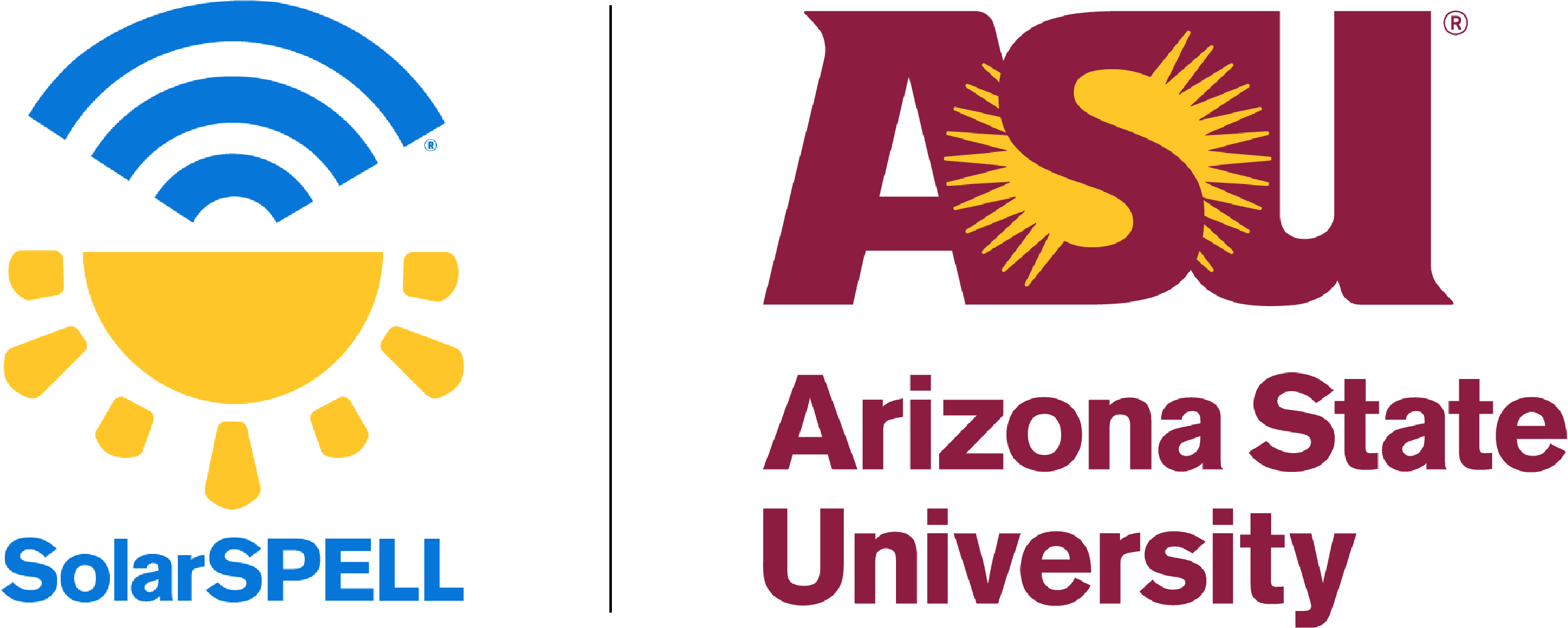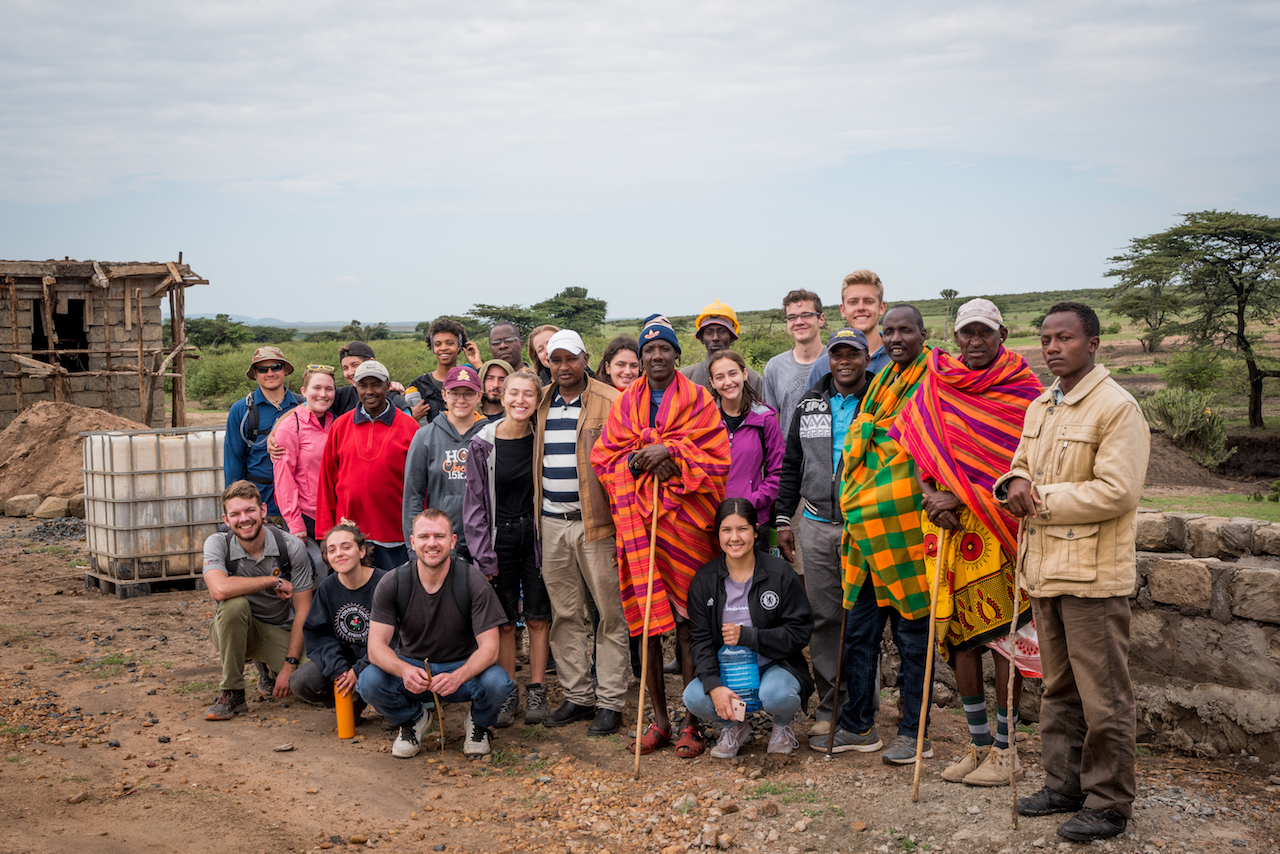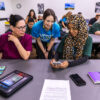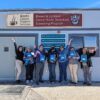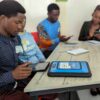Two SolarSPELL team members visited the Maasai Mara in Kenya to build a partnership with the Maasai Education, Research and Conservation Institute, or MERC, during June 2019. The Maasai are an indigenous people in Kenya, and the MERC has worked with the community for nearly 30 years to ensure their culture lives on. This was a unique experience for SolarSPELL for multiple reasons: This was our first collaboration with an indigenous community, and we accompanied an Arizona State University and Prescott College study abroad trip. Chloe Scott, SolarSPELL’s Sustainable Implementation Lead, worked with several ASU & Prescott College students to gain an understanding of the Maasai’s current education structure and how the SolarSPELL could be a beneficial resource to this community.
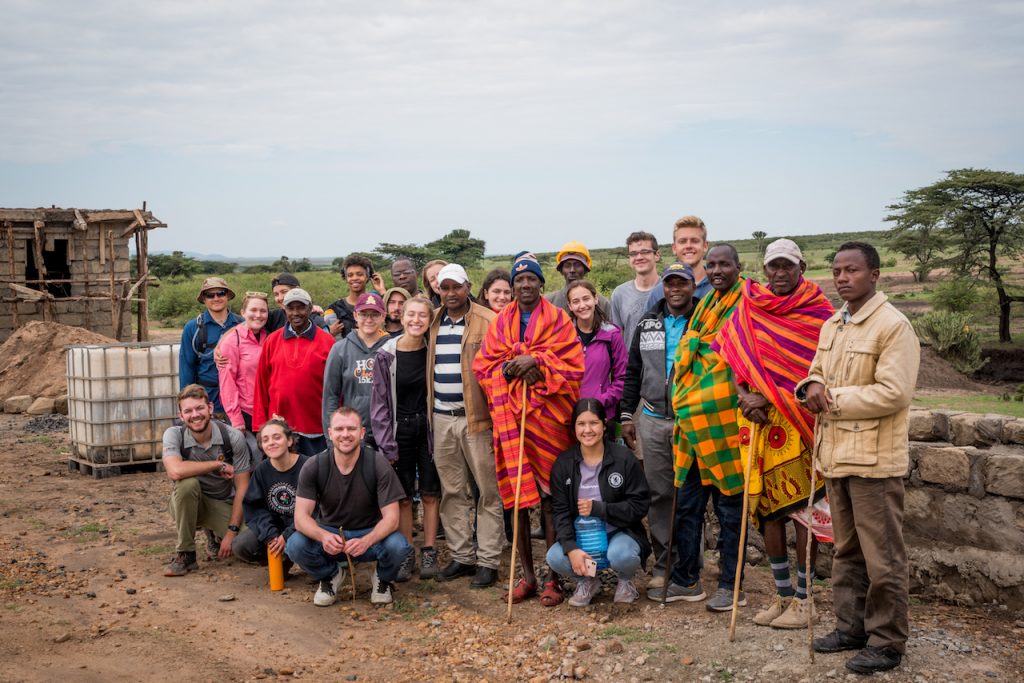
The elders from the community and MERC staff gave students from ASU and Prescott College a tour of the water project. Photo credit: Jarvie Photography
Before traveling to the Mara, we spent a few days in Nairobi. We met several soon-to-be graduates of the Mara Guides Association training program, or MGA, and co-directors of the MERC, and we visited the Karen Blixen Museum together. Maasai Elders, Meitamei Olol Dapash and Ole Keiwua, and Mary Poole, co-director of the MERC, led a discussion after the tour. This was the SolarSPELL team’s first opportunity to learn more about the history of the Maasai land – more specifically, how the Maasai had been marginalized and misrepresented in Kenya for centuries.
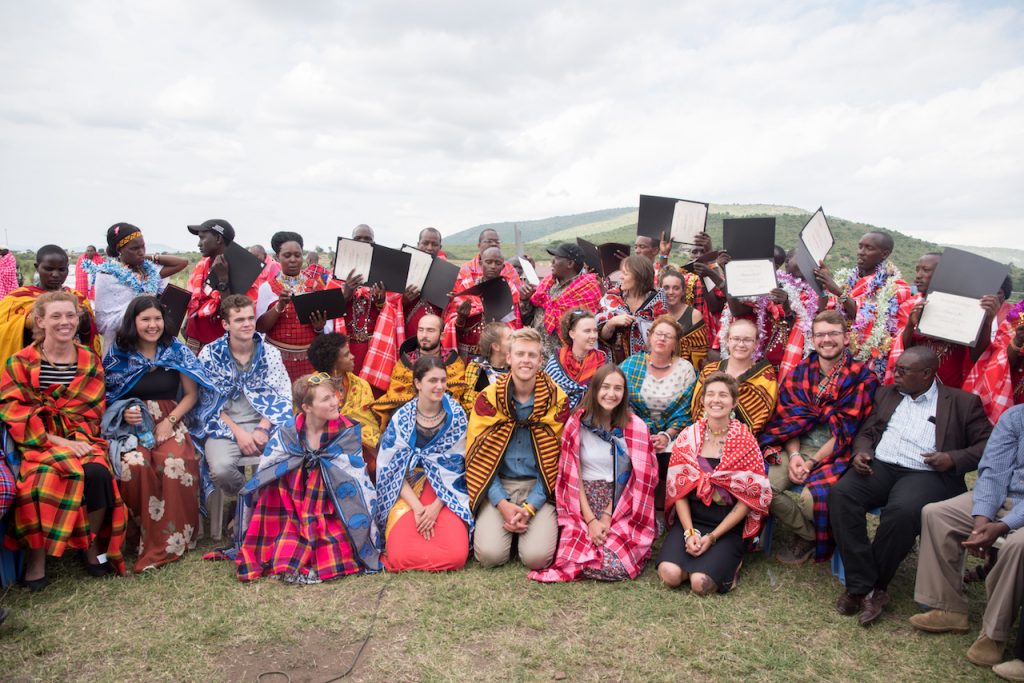
The ASU and Prescott students with the recent graduates of the MGA tour guide program at their graduation ceremony. Photo Credit: Jarvie Photography
This foundational understanding is integral to SolarSPELL because education can be a powerful tool to combat challenges a community has faced – but only if that tool is wielded effectively. Our next step was to learn how the SolarSPELL could be useful for the Maasai. When we arrived at the MERC, we spoke with Mary Poole and Meitamei about the current education system for Maasai youth and how they’d like to see the SolarSPELL used within the community.
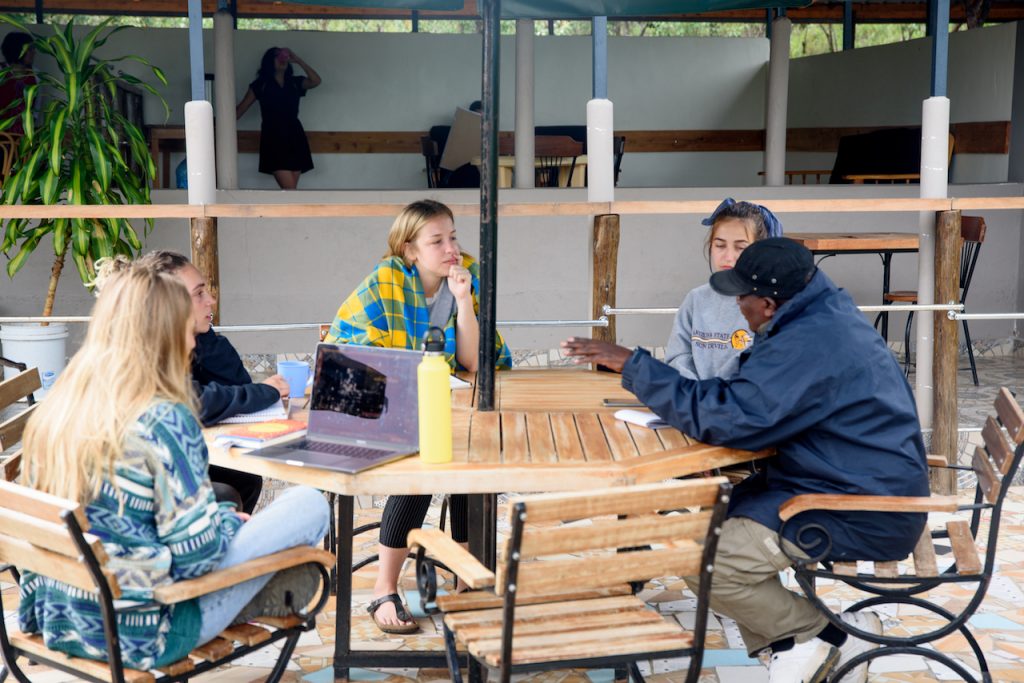
The SolarSPELL project team meeting with Meitamei to understand the education system in the Maasai Mara. Photo Credit: Jarvie Photography
We learned that schools have limited access to textbooks and seldom educate on Maasai culture and language. As a solution, SolarSPELL could train MERC staff on how to navigate the digital library, and teachers and students could go to the MERC to access the SolarSPELLs. Educators also have the opportunity to download content on their personal devices to incorporate in their lessons. Additionally, we could create hyper-localized content focusing on Maasai culture and the Maa language.
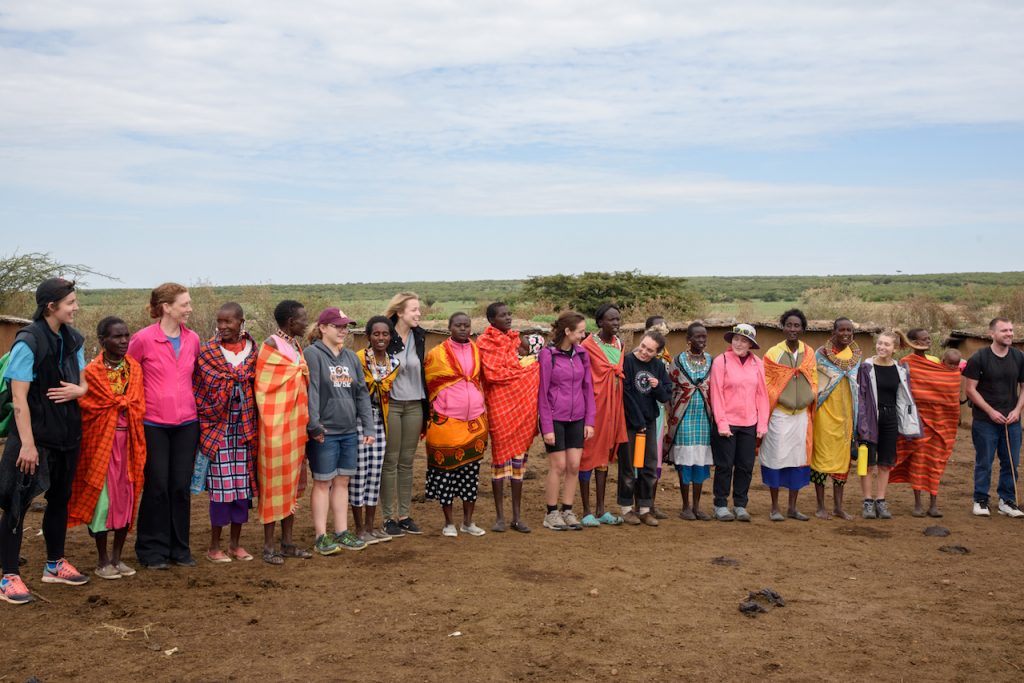
When visiting a Maasai village, the women taught the ASU and Prescott team the traditional welcome dance. Photo Credit: Jarvie Photography
During the MERC staff training, all of the staff were enthusiastic about SolarSPELL and its potential impact. They navigated the platform comprehensively and engaged with the material. Our team is confident they’ll be able to train others on the digital library. The MERC staff took a strong interest in local content and asked many questions about the process of adding resources that would be especially valuable to the Maasai community.
- Photo Credit: Jarvie Photography
- Photo Credit: Jarvie Photography
The team also had the opportunity to train teachers from the local school, both at the school and the MERC. Several educators gathered at the MERC to explore the digital library freely. They all communicated that the SolarSPELL could be an excellent resource for students, because the current digital tools they use are limited, both in number and content included. We learned that Kenyan law places new educators in schools outside of their county for the first few years they teach. This can be problematic for communities like the Maasai because non-native teachers are not always familiar with the native culture and language. This illustrates why SolarSPELL and the MERC’s goals emphasize local content curation and creation. Additionally, we learned what we should be aware of when building a digital library specifically for rural Kenyan schools. For example, children in primary schools are required to pass exams in order to enter secondary school; however, these exams are biased, favoring urban education. We want to ensure that the information included in our libraries is complementary to rural education and testing.
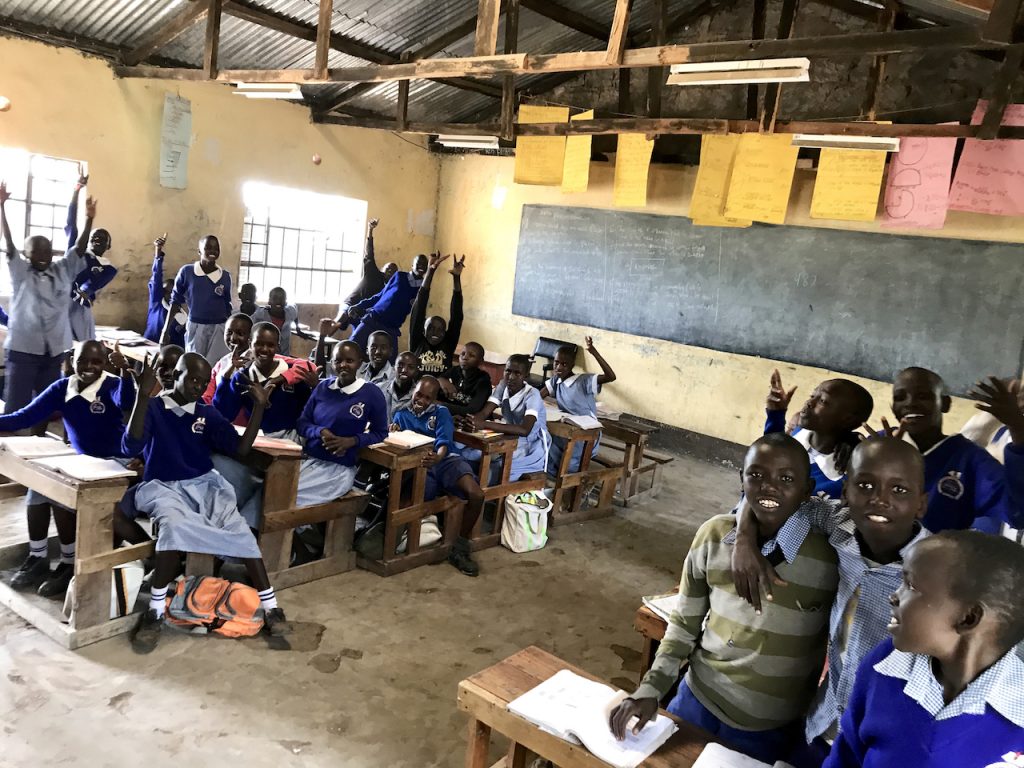
Photo credit: Miles Miller
The SolarSPELL team is excited about our partnership with the MERC and the collaborative work while in-country, but recognizes the strides that must be made to make the library the most useful it can be. While there, we were able to create several Maa language videos and fact-sheets about Maasai land rights and conservation efforts. However, a library is never finished! We look forward to adding more content to the SolarSPELL, such as the first written Maa dictionary by Ole Keiwua, while keeping in mind this community’s aim. We are so grateful for Masaai’s openness to the SolarSPELL team, and we look forward to continuing to develop this project together!
